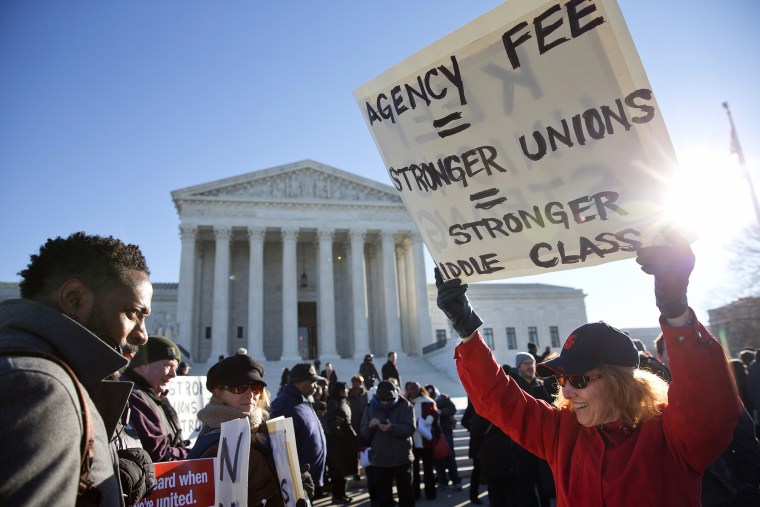Agency fees work like this: Public sector unions are required to cover all employees in a given bargaining unit, whether the employees opt into union membership or not. Public sector employees (which include EMTs, firefighters, public school teachers, social workers, and more) thus pay agency fees to their respective unions even if they are not union members, because public sector unions work on behalf of everyone in their bargaining unit, not just union members. Agency fees do not fund unions' political activities, but rather strictly the costs of union grievance-handling, organizing, and collective bargaining. In the 1977 case Abood v. Detroit Board of Education, the Supreme Court upheld the right of public sector unions to extract agency fees from public sector workers, and found that agency fees do not violate employees' freedom of speech, so long as they do not fund unions' political activities.
For the California teachers' unions pleading their case at the Supreme Court Monday morning -- in a case that could impact public sector unions across the country -- the math just didn't add up. All five conservative justices expressed their exasperation at the argument that unions should be able to charge non-members for collective bargaining, and showed sympathy for the teachers who went to court to say such fees violate their First Amendment rights. Justice Anthony Kennedy, who sometimes votes with the Democratic appointees, but rarely on issues he perceives to be First Amendment-related, seemed the most sympathetic of all to the plaintiffs.
